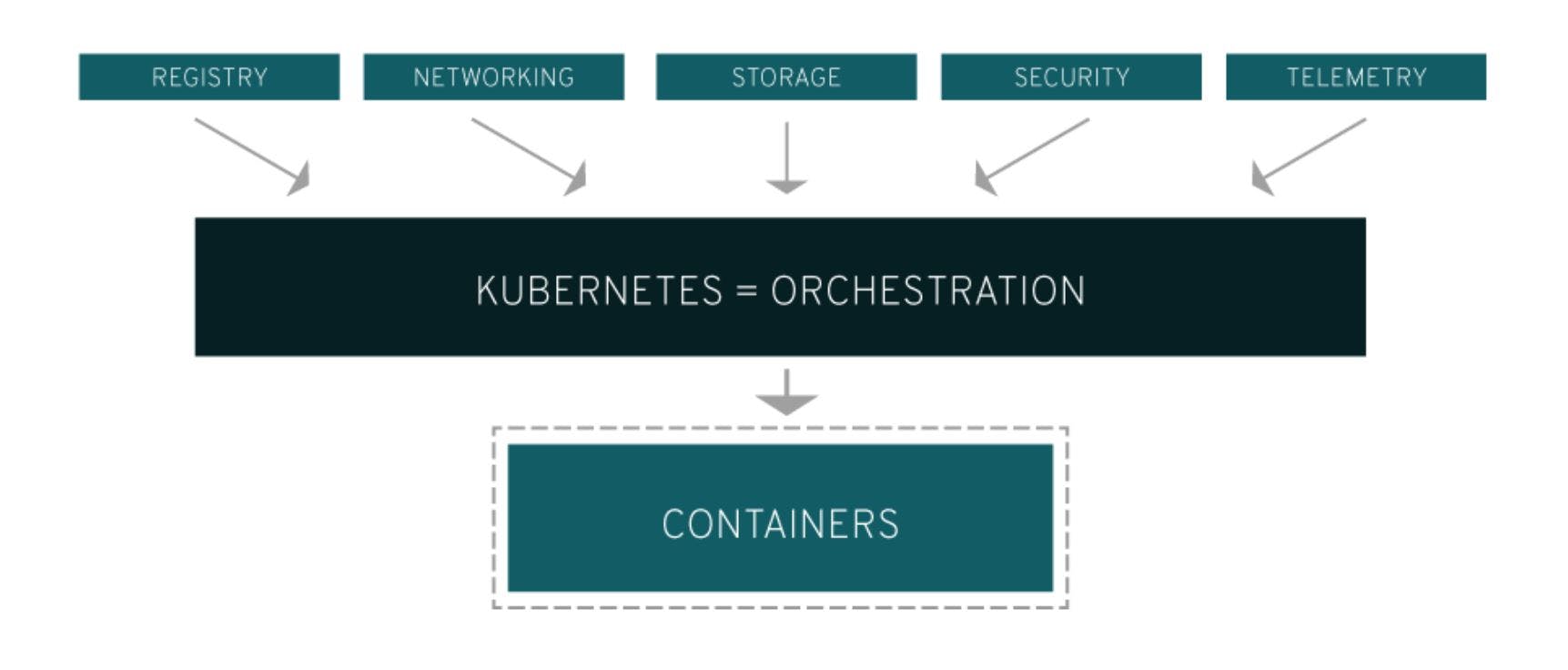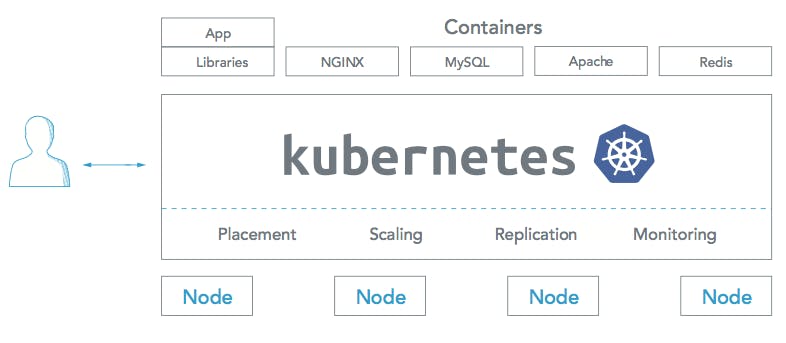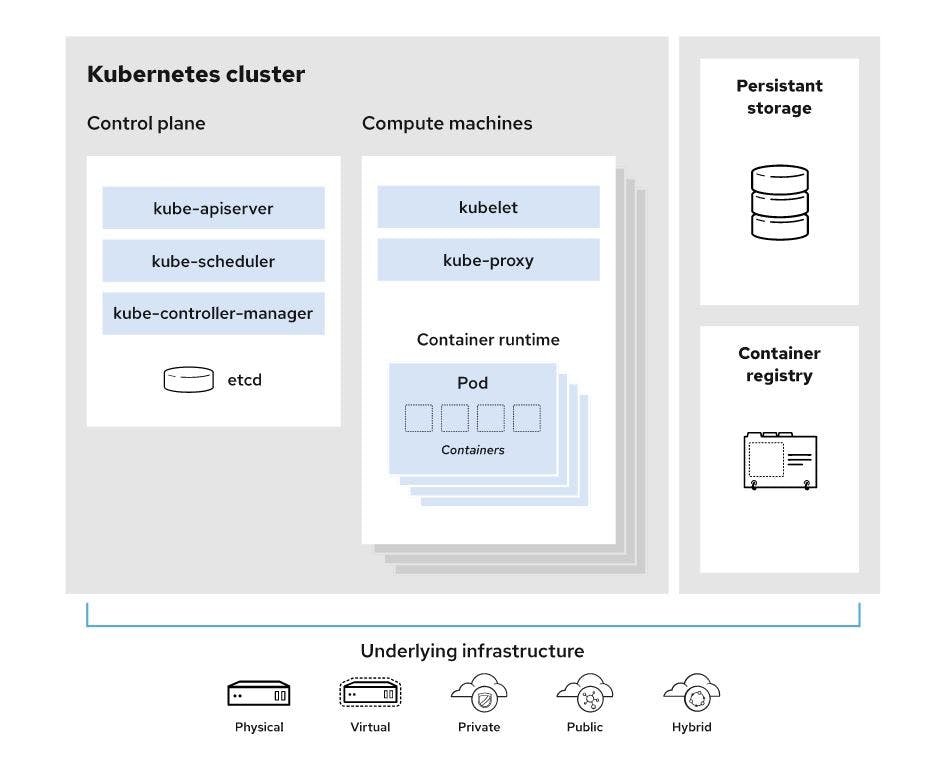What is Kubernetes?
“Kubernetes, or k8s, is an open source platform that automates Linux container operations. It eliminates many of the manual processes involved in deploying and scaling containerized applications,” Haff and Henry write. “In other words, you can cluster together groups of hosts running Linux containers, and Kubernetes helps you easily and efficiently manage those clusters.”
Kubernetes is a popular open source platform for container orchestration — that is, for the management of applications built out of multiple, largely self-contained runtimes called containers.

What is container orchestration?
Container orchestration is the management of individual web servers operating in containers through virtual partitions on data center hardware.
Container orchestration is a means of maintaining the elastic framework for web servers in a data center on an automated basis in production.

Why do we need Kubernetes ?
Keeping containerized apps up and running can be complex because they often involve many containers deployed across different machines.
Here come Kubernetes to the rescue what it does is that it provides a way to schedule and deploy those containers and it scales them to your desired state and manage their life-cycles.
Kubernetes can be used to implement container-based applications in a portable, scalable and extensible way.

Advantages of using Kubernetes
- Scale containers easily
- Its ability to operate an automated, elastic web server platform in production without the vendor lock-in to AWS with the EC2 service.
- Build more extensible apps
- It eases the deployment of preconfigured applications with Helm charts
- Simplifies management of storage, secrets, and other application-related resources
- Applications can run in hybrid and multi-cloud environments
- manages app health, replication, load balancing, and hardware resource allocation